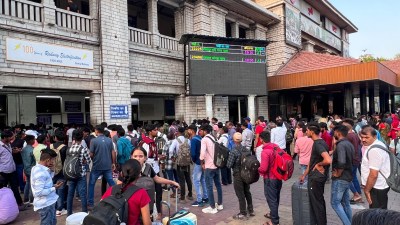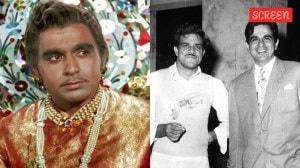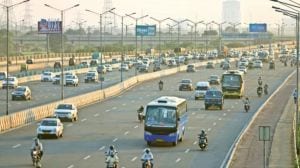Panel for ending DoT monoply
NEW DELHI, Jan 23: No more monopoly of government-run organisations such as the Department of Telecommunications DoT on STD calls, endi...

NEW DELHI, Jan 23: No more monopoly of government-run organisations such as the Department of Telecommunications DoT on STD calls, ending VSNL8217;s hegemony over international calls ISD by 2002, and allowing even local cable operators to instal phones at subscriber8217;s homes. These are some of the revolutionary suggestions made by the sub-group on telecom headed by ICICI chief K.V. Kamath today.
The sub-group, whose draft has been sent to the Group on Telecom headed by External Affairs Minister Jaswant Singh, has also suggested that an entry- fee-cum-revenue-sharing formula be adopted for all future telecom licenses. It has suggested that, when a new policy is in place, the existing licenses be suitably amended. It has suggested that the revenue sharing formula be fixed by the Telecom Regulatory Authority of India TRAI 8220;before June 30, 19998221;.
The draft policy has recommended the immediate opening up of domestic long distance telephone services 8211; which means private companies can come into the field toprovide STD calls creating more competition in the rates for these calls. The licences for domestic long distance DLD will be valid for a 20-year period, extendable by another 10 years with no restrictions on the number of licences cornered by a single company. Different licencees will be allowed to interconnect between themselves, or any other service providers. Since the country has already awarded licenses for different segments of the telecom sector 8212; basic telephony, cellular, internet, and so on 8212; the sub-group has decided not to alter this too much. What it has suggested instead is to virtually open up what in telecom parlance is called the last mile linkage8217; for basic telecom services. This means that, eventually, even your local cable operator can provide you a normal land-line telephone the ones that all of us have at home.
For example, if Bharti Telecom is the basic license holder in Madhya Pradesh, Bharti does not necessarily have to provide cable links to set up telephones in eachsubscriber8217;s house. While Bharti will run the overall network, all it will have to do is to take its telecom cable upto some point in the city. After this, other operators such as the cable TV ones who in any case have their own cables, can take the signal into a subscriber8217;s house on behalf of Bharti. Your internet connection can also be got through your cable operator who would be representing internet provider.
The sub-group8217;s draft will be put on the internet late tonight, and comments would be invited till February 7, after which the feedback received will be analysed and suitable changes incorporated in the draft. This was stated by N K Singh, member-secretary of the GoT, after a GoT meeting here today. Apart from this, the draft has recommended a new nomenclature for all services 8211; basic, cellular, paging and cable. Basic services will now be called 8220;Fixed access service providers8221;, cellular operators will be called 8220;cellular mobile access service providers8221;, paging operators as 8220;radio pagingaccess service providers8221; and cable operators as 8220;cable access service provider8221;.
Cable operators to install phones
- 01
- 02
- 03
- 04
- 05































